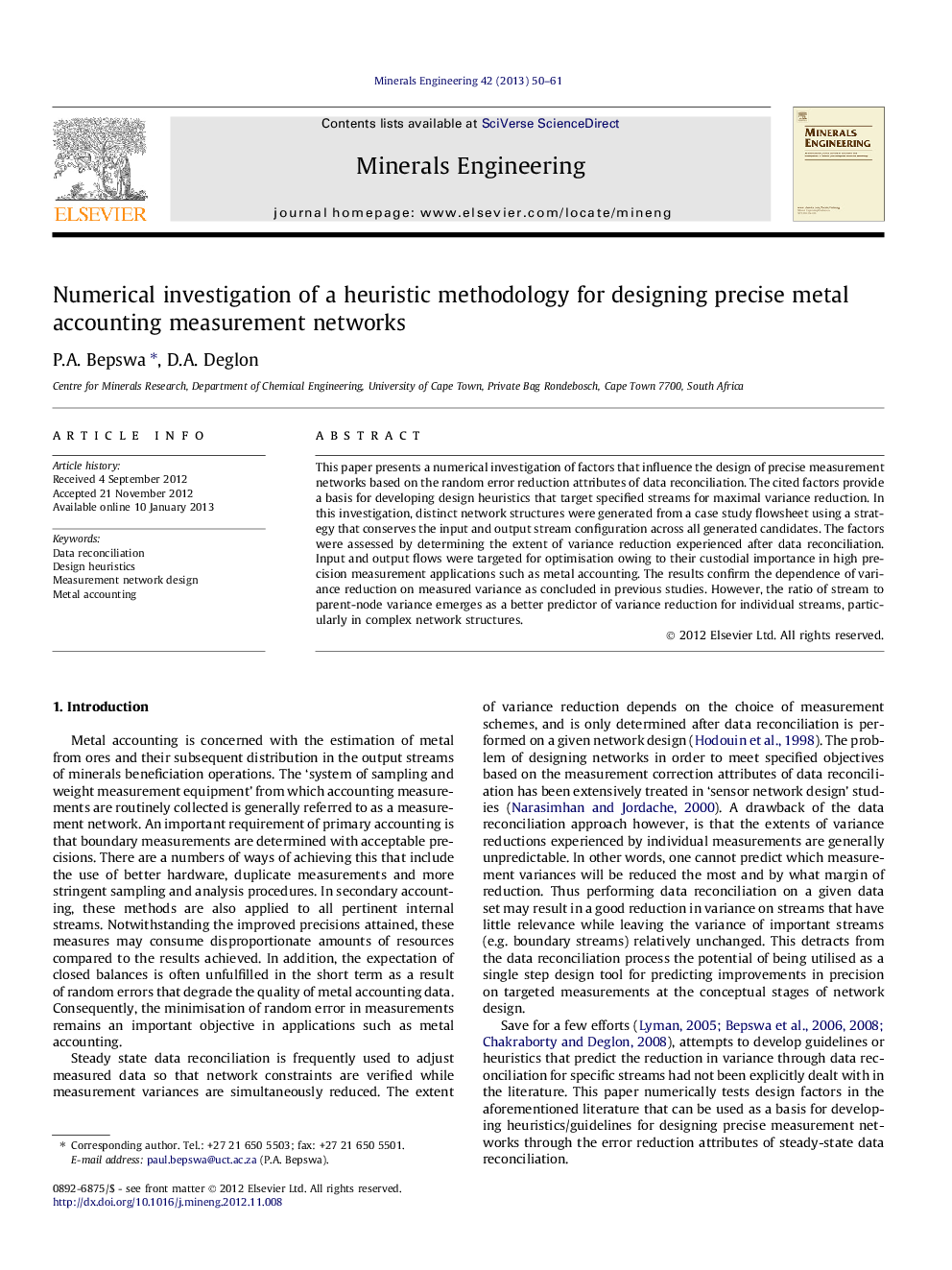| Article ID | Journal | Published Year | Pages | File Type |
|---|---|---|---|---|
| 233492 | Minerals Engineering | 2013 | 12 Pages |
This paper presents a numerical investigation of factors that influence the design of precise measurement networks based on the random error reduction attributes of data reconciliation. The cited factors provide a basis for developing design heuristics that target specified streams for maximal variance reduction. In this investigation, distinct network structures were generated from a case study flowsheet using a strategy that conserves the input and output stream configuration across all generated candidates. The factors were assessed by determining the extent of variance reduction experienced after data reconciliation. Input and output flows were targeted for optimisation owing to their custodial importance in high precision measurement applications such as metal accounting. The results confirm the dependence of variance reduction on measured variance as concluded in previous studies. However, the ratio of stream to parent-node variance emerges as a better predictor of variance reduction for individual streams, particularly in complex network structures.
Graphical abstractThe reduction in variance experienced by terminal streams depends on the ratio of observed stream variance to the total variance associated with the respective parent-node on average. Streams with variances close to the average magnitude of all terminal streams in a given network are more sensitive to this ratio compared to the larger and smaller variances.Figure optionsDownload full-size imageDownload as PowerPoint slideHighlights► This paper investigates factors influencing precise measurement network design. ► Several distinct multi-node networks were generated from a case study flowsheet. ► The reduction in variance of target streams was assessed after data reconciliation. ► The extent of variance reduction depends on the magnitude of measured variance. ► The stream to node variance ratio strongly predicts individual variance reduction.
